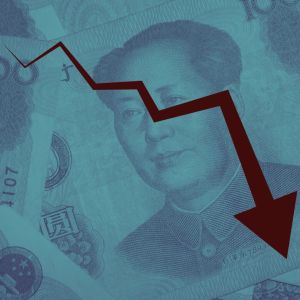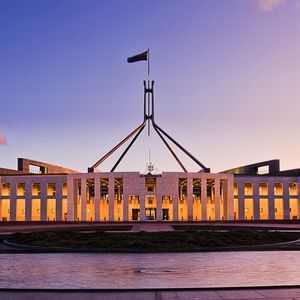China’s state-owned AVIC Trust Co. has requested operational support from two fellow trust firms after delaying payments on its investment products. The call for help comes at a time when the nation’s $3.7 trillion trust industry is struggling. AVIC Trust will become the first state-owned trust firm placed in custody since China’s Trust Law was enacted in 2001. According to a Bloomberg exclusive on Monday, the Beijing-based firm announced that it had entered into a service agreement with CCB Trust Co. and SDIC Taikang Trust Co. The two state-owned institutions will now oversee AVIC Trust’s daily operations. The company said its outstanding claims and obligations will remain unchanged. Chinese financial elites are now worried because defaults are clouding the trust industry in China, which is also dubbed the shadow banking sector due to its opaque financial practices. A financial sector under years of stress The AVIC Trust development follows similar events seen in 2023 involving Zhongrong International Trust Co., once among China’s biggest shadow banking players. Zhongrong defaulted on a slew of wealth management products and was subsequently placed in custody by CCB Trust and Citic Trust Co. Now, those custodians have concluded that Zhongrong is insolvent, and a formal winding-up proposal has been submitted to regulators, according to sources familiar with the matter. In 2022, Zhongrong had about 786 billion yuan ($108 billion) in assets under management. The firm, headquartered in Harbin, defaulted on roughly 250 billion yuan worth of trust products sold to over 30,000 individual investors and 2,000 institutions. Its parent company, Zhongzhi Enterprise Group Co., collapsed in late 2023, a time when analysts warned creditors that more than three-quarters of investor funds would likely never be recovered. Henry Zhang, an individual investor who lost 16 million yuan ($2.2 million) in Zhongrong’s failed products, said the financial shock has shaken confidence among China’s elite. Zhang said he is considering selling his family home in Beijing to downsize and recover some liquidity. “ It’s not just about the money, it’s the trust in the system that’s been broken ,” Zhang said. Cases of defaults increase with no signs of relief At least 162 high-yield trust products have defaulted since the beginning of 2024, according to data compiled by Use Trust. Most of these defaults are linked to troubled property loans, another sector facing downturns, even when Beijing is trying to enact policies to stabilize the market. Revised regulatory drafts published last week reiterate that buyers of trust products must bear the investment losses unless sellers are found to have committed negligence or misconduct. On Monday, the People’s Bank of China held its one-year loan prime rate at 3.10% and its five-year rate at 3.60%. This marks the sixth consecutive month without changes, which was well within the expectations of a Reuters survey of 31 market participants, 87% of whom predicted no adjustment. Analysts believe stronger-than-expected first-quarter growth data may have alleviated pressure for immediate easing. As reported by Cryptopolitan last week, China’s gross domestic product grew 5.4% in the first quarter of 2025. However, a trade battle with the United States and concerns over the yuan’s depreciation could have narrowed policymakers’ room to maneuver. Against this backdrop, regional markets showed a mixed reaction on Monday. Mainland China’s CSI 300 index edged up 0.33% following the rate decision. Conversely, Japan’s Nikkei 225 fell 1.30%, and the Topix index declined 1.59% in late Asian trading hours. South Korea’s Kospi had a small uptick of 0.22%, while the small-cap Kosdaq dipped 0.32%. India’s Nifty 50 gained 1.39%, and the BSE Sensex added 1.36%. Markets in Hong Kong and Australia were closed for the Easter holiday. Cryptopolitan Academy: Tired of market swings? Learn how DeFi can help you build steady passive income. Register Now



















